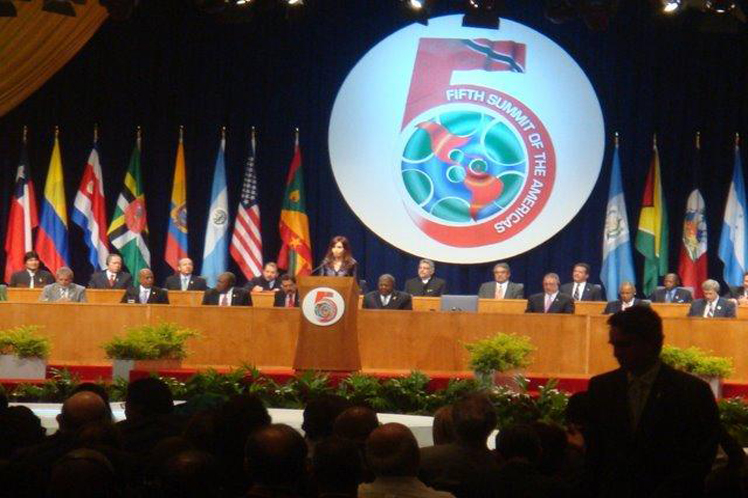The Heads of State and Government who attended Port-of-Spain, capital of Trinidad and Tobago, from April 17 to 19, 2009, were very clear that Cuba’s reintegration into the inter-American relations was an essential step for the Americas.
That weekend, 13 years ago, the presidents also showed that Obama’s projection was the beginning of a new era between Havana and Washington.
They also had high expectations regarding the announcements of changes in the US policies towards the continent, and particularly, the elimination of the economic, political and commercial blockade of that government against the Cubans.
“We look forward to the day when Cuba can take its rightful place among its colleagues in the hemisphere,” said Trinidad and Tobago’s Prime Minister Patrick Manning, who delivered the closing remarks at the meeting.
Cuba had not been invited to any of the Summits held since 1994, and for the Trinidad and Tobago meeting, it was not allowed to attend either.
Among those present, Nicaragua’s President Daniel Ortega expressed his shame for Cuba’s absence, “the brother country”, and refused to call that Pan-American meeting by its name.
The Cuban nation was sanctioned and punished for fighting for its independence, the sovereignty of the peoples, providing solidarity without conditions to the Latin America and Caribbean countries, “and for that reason, I do not feel comfortable in this Summit,” Ortega emphasized.
That year, Cuba was the only country excluded from the Summit, which detracted from the efforts to achieve regional solutions to regional problems such as human prosperity, energy security and environmental sustainability.
It became clear there that Cuba’s inclusion in the main hemispheric issues was a priority for the continent.
Although Cuba never demanded its presence at the hemispheric Summits, its participation was achieved in Panama in 2015, 28 years after the first of these meetings, held in the US city of Miami.
pgh/iff/jcm/ool/yaa










